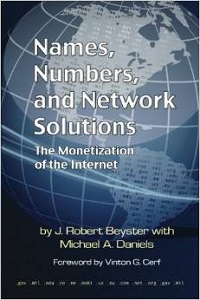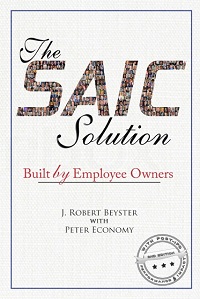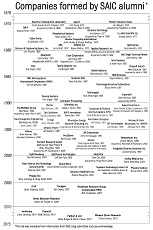Adapting Our Defenses, Facebook IPO
4 Comments Published by Dr. Beyster February 4th, 2012 in Government.Although I am not an oceanographer, I have enjoyed many discussions on the topic of the oceans and global warming with my longtime friend Walter Munk from the Scripps Institution of Oceanography here in La Jolla. It was with these discussions in mind that I recently read an interesting article written by Raphael Sagarin, a marine biologist.
The article — titled “Adapt or Die: What Charles Darwin can teach Tom Ridge about homeland security” — was written in 2003; however, I believe it is still relevant today. According to the author, “Creatures that adapt to threats and master the evolutionary game thrive; those that don’t become extinct.”
The author goes on to say that for our nation to survive in a post-9/11 world, our defenses must constantly adapt and change in response to threats such as al-Qaeda. This means not creating a huge bureaucracy like the one now in place within the Department of Homeland Security, but instead meeting the asymmetric threat of terrorism in a fast, flexible, and ever-changing way.
I agree with Mr. Sagarin’s assessment. It seems to me that our most successful victories on the battlefields of Iraq and Afghanistan have come about through the engagement of special forces units that can be deployed and take action with great speed and flexibility, and also through our drone aircraft, which are difficult for the enemy to anticipate and defend against. I believe we will see our military become faster and more flexible, and less dependent on large fixed assets. This model would be a good one for the rest of our government to copy.
* * *
The big news this week was the announcement by Facebook that the company will soon embark on an initial public offering of its stock. This could be the largest IPO yet, and I think it is a good thing for the investing public.
I read somewhere that 1,000 millionaires (and some number of billionaires) will be created as a result of the IPO. Certainly the IPO is a good thing for these shareholders.
Some people think there is a direct competition between Facebook and Google for advertisers. I don’t think so. I think they fulfill different roles and both are useful in their own unique ways. Both Facebook and Google show the promise of being profitable well into the future.
– Bob





Dr. Beyster,
I agree with you on defense of our nation in that to protect the USA, our defense needs to be very fast and flexible. Certainly, we should focus on this changing landscape. In the past our military has worked toward adapting. One example would be the battleship in that the Navy recognized that they were obsolete. The last American battleships were the Iowa class built during WWII. Today’s Navy is again adapting by building littoral combat vessels. These vessels are designed to be fast and flexible with an emphasis on Special Forces. Clearly the emphasis is to stomp out the spark before it becomes a fire.
Regarding, Facebook I have to believe that this company will have a short lived success because peoples tastes will change and something bigger and better than Facebook is just around the corner. Look at MySpace, they are virtually gone at this point.
No doubt the shareholders of Facebook stock will make money provided that they sell the shares but the average person will not be able to participate in this IPO. My guess is this stock will run high for a while but most secondary shareholders will not reap any benefits.
Frederick: Thank you for your thoughtful comments. I will be interested to see if your predictions regarding Facebook come to pass. You are right — people are quite fickle when it comes to the Internet. While many sites have attracted a large following and then faded (AOL and Yahoo come to mind), a handful have endured and become stronger over time (witness Google and YouTube). It will be interesting to see where Facebook — and its stock — is five or ten years from now. — Bob
Bob,
you may like this book:
Certain to Win: The Strategy of John Boyd, Applied to Business
It describes an adaptive approach to business, that is somewhat reminiscent of the way SAIC operated. It would also be applicable to DHS…
Blake: Thanks for the book recommendation. I will get a copy soon. — Bob